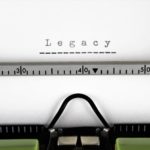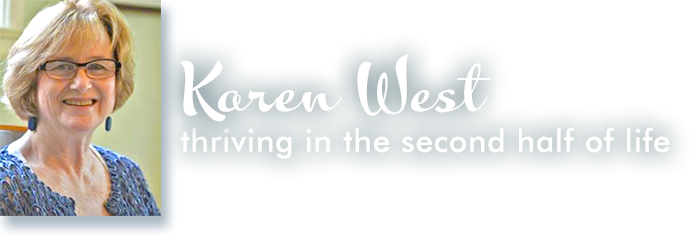Today I’m excited to begin writing about the Sage-ing core topic of Legacy. When I started teaching people about conscious aging, and later sage-ing, I knew that legacy was an important topic, but personally I had never thought much about it. I didn’t have enough money to be concerned with writing a will, and I didn’t have any valuable possessions to leave for my family and friends.
However, after being trained by Rachael Freed as a Certified Legacy Facilitator (Her website is www.life-legacies.com), I realized that leaving a legacy is one of the most important things we as elders can do. Legacy consists of so much more than passing on money and possessions. To leave a meaningful legacy, we don’t have to own anything; we just have to be ourselves.
I love the way Joan Chittister puts it in her book The Gift of Years: Growing Older Gracefully. “What we are inclined to forget is that each of us leaves a legacy whether we want to or not. Our legacies are the quality of the lives we leave behind. What we have been will be stamped on the hearts of those who survive us for years to come. The only question is, will we cultivate that living legacy as carefully as bankers and tax collectors and lawyers do the material wills that distribute nothing but stocks and bonds and insurance policies and savings accounts which might disappear with the legal fees they generate.” (216)
We can consciously and intentionally craft the “quality of the life we leave behind, knowing that it will be “stamped on the hearts of those who survive us for years to come.” In her book Legacies of the Heart: living a life that matters, Meg Newhouse calls this an “essence” legacy. (29)
But our legacy can also go way beyond “the quality of the life that we leave behind.” We can also leave written words. In her book Your Legacy Matters: harvesting the love and lessons of your life, Rachael Freed writes about September 11, 2001 and how much it would have meant to the survivors if their loved ones had “written words of love and caring. How comforting it might have been to hold personal words on paper in their hands and hearts to read and reread for the rest of their lives.” (xviii)
 When Rachael says “written words,” she is talking about a legacy letter. And Rachael doesn’t just suggest that we write a legacy letter to be left behind when we die. She suggests that we write letters and give them to people we care about for other occasions when we’re still alive.
When Rachael says “written words,” she is talking about a legacy letter. And Rachael doesn’t just suggest that we write a legacy letter to be left behind when we die. She suggests that we write letters and give them to people we care about for other occasions when we’re still alive.
She quotes Andrew Weil in his famous book Healthy Aging, written in 2005. Weil says the ethical will, which is the precursor to legacy letter, is pertinent to those of us “concerned with making sense of our lives and the fact of our aging.” And what he said (as an endorsement of Rachael’s earlier book Women’s Lives, Women’s Legacies) that is even more important is “The ethical will {the precursor to the legacy letter} is a wonderful gift to leave to your family at the end of your life, but I think its main importance is what it can give you in the midst of life.” (4)
And Weil gives us a list of reasons why we should write ethical wills:
It’s a way to leave something behind, to be remembered; it’s a way to document your history and stories so that others can learn from them in the future; it can help you understand your own values and to share your ideas with future generation; it can help you learn more about yourself, it can help you accept mortality and create a way to ‘live on’ after you are gone; and it can provide an immediate sense of worthiness, completion, and accomplishment (4)
I love the idea that writing legacy letters can be as meaningful for the person writing the legacy letter as it is for the person who receives it. Rachael Freed says, “The time we’ve been given permits us to reflect on our life lessons and to translate our learning from the raw experiences off our lives.” (xvi)
In three weeks, in my next blog entry, I will continue writing about legacy.
Also, if you read my blog, I encourage you to provide your email address, so each entry will be sent directly to your inbox. Thank you so much!


2 thoughts on “What Do You Plan to Leave Behind for Your Loved Ones When You Die?”
Wonderful inspiring!! Thank you.
I also appreciate the work you put into your facebook posts.